#minister marcel
Explore tagged Tumblr posts
Text
For my non-Romanian followers, here's why you might see Romanians on social media losing their minds:
(Context: we have a semi-presidential state and a 2 round presidential election system. if nobody has above 50% in the first round, the two candidates with the most votes go in the second round, 2 weeks after the first. in a spectacularly stupid move, we also have the parliamentary elections on the 1st of december (the romanian national day) (right between the 2 rounds of the presidential elections))
until the counting of the votes was finished, literally every poll showed the current prime minister (marcel ciolacu) (a corrupt idiot) to be on the first place. the second place was being fought for by:
1. elena lasconi - leader of the usr party (centre-right liberal)
2. george simion - leader of the aur party (far-right nationalist populist)
surprise suprise! the first place was won with over 2M votes by călin georgescu, an independent candidate. he's an ultra-nationalist, anti-eu, anti-nato, pro-russia, openly supported the legionarists (romanian fascists), openly believes in bizarre conspiracy theories (water is not h2o, the moon landing was fake, coke and pepsi have microchips, coronavirus isn't and was never real). this is doubly insane because another candidacy (diana şoşoacă) was invalidated by ccr due to her statements that opposed constitutionary values
the second place was won by lasconi, at a difference of 2740 votes from ciolacu
since monday, there have been anti-fascist and pro-democracy protests all over the country
today/yesterday (thursday), the constitutional court (ccr) decided that the votes will have to be recounted until friday at 14:00. this is an insane deadline and everyone in the country except ccr thinks so. also, independent observers aren't allowed, and we still don't know what will happen if the order of the candidates will change. ciolacu announced that he will step down from the race even if it turns out that he got 2nd place. the options are: re-do the 1st round, go forward with georgescu vs lasconi, go forward with georgescu vs ciolacu. i sincerely hope that an automatic georgescu win isn't an option. this confusion also comes after one of the 14 (!!!) candidates stepped down days before the 1st round and announced his support for lasconi but the ballots were already printed and the votes for him counted.
I'm sure I'm missing a lot of things because this has been a frankly insane week. Romanians, feel free to add whatever you want
tl;dr: the romanian public institutes are profoundly undemocratic
128 notes
·
View notes
Text
All of Napoleon’s Descendents Who fought and or Died in the (Great War) World War I
1. Daniel Napoléon Jean Fernand Mesnard (1896 - 1917)
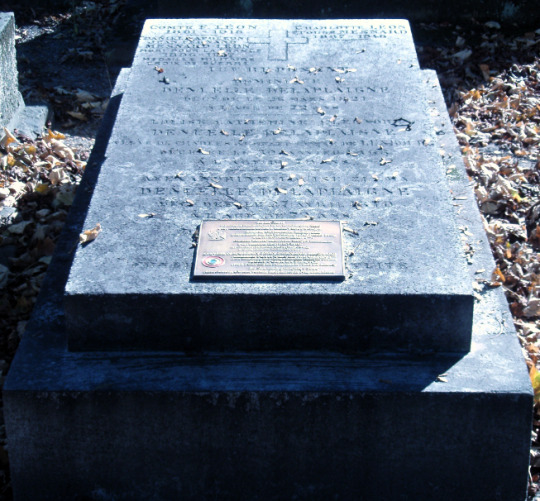


Daniel Napoléon Jean Fernand Mesnard was born in 1896 in Serignan (Hérault). He is the son of Armand Mesnard and Charlotte Fany Léon , daughter of Count Charles Léon and granddaughter of Napoleon I and Louise Catherine Eléonore Denueule Delaplaigne. During WW1 Daniel became a corporal in the 17th Chasseurs Regiment. He died for France on the 17th of July 1917, at the age of 20, at Fort Pompelle, killed at the head of a machine gun section near Reims (Marne). He was buried on April 22, 1921. He rests with his great-grandmother, Louise Catherine Eléonore Denueule Delaplaigne. He was unmarried and without issue
2. Captain Louis Napoléon (Count) Mathéus (1878-1915)

Son of Count Frédéric Mathéus, and his wife Eugénie Colonna-Walewska and Great Grandson of Napoléon and Marie Walewska.
Louis was a Captain in the 29th Regiment of Dragoons, He died in action, marking him as a "Mort pour la France" (died for France), he was aged 37 years old. He was married and does have descendants.
3.Lieutenant Colonel Charles (Count) Colonna-Walewski (1848 - 1916)

Charles as Lieutenant Colonel
Charles-Zanobi-Rodolphe, was born the second son of Count Alexandre Colonna-Walewski, and Countess Marianne di Ricci in Firenze, Toscana, Italy. And grandson of Napoléon and Marie Walewska. His father Count Walewski was Foreign minister of his cousin Napoléon III. Him and his two sisters along with the nieces of the empress and the son of doctor Conneau - were the main playmates of the Imperial Prince.


Young Charles around the period of the Franco Prussian war
He took service in the active army (1870-1871), in the Foreign Legion (1871-1873) and then in the infantry and served Emperor Napoléon III during the Franco Prussian war of 1870. He would have his first military career, completed in 1897 at the rank of battalion commander, in the National Guard. He was an officer of race and man of the world, he served as a model for Marcel Proust for his prince of Borodino in "In Search of Lost Time" He would serve as squadron chief of the 35th and ended his career with the rank of lieutenant-colonel of the 131st Line Infantry Regiment.
At the outbreak of the First World War , aged 66, he asked to go to the front. He was quickly assigned to command a territorial infantry regiment in the war zone. He was killed in combat on October 2, 1916 in Villers-Cotterêts, at the age of 68.
4. André Alexandre Maurice (Count) Colonna-Walewski (1871 - 1954)
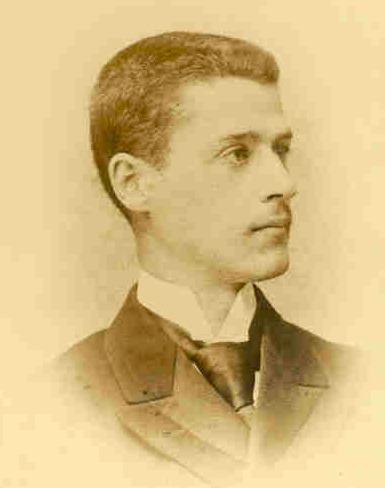
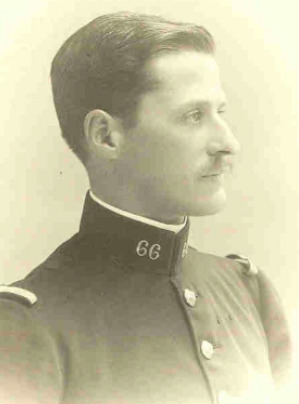
Was the son of Alexandre Colonna Walewski II (half brother of Charles) and his wife Jeanne Sala, Therefore the great grandson of Napoléon I and Marie Walewska, and their son via the tragedienne Rachel Félix.
Graduating as an officer from the Saint -Maixent Infantry School , he prepared for a military career. He participated twice in the Great War in the 66th Infantry regiment, and Walewski who was the Co-founder in 1905 of the "Autoplace" taxis, (more commonly called "G7” a company in existence today in France) because of their registration, he was one of the organizers of the "Taxis de la Marne" operation strategy . He then engaged, despite his age, and was wounded in combat and was decorated several times during the conflict.
His wife was Marie Molinos, daughter of a rich industrialist Léon Isidore Molinos. The current French Walewski’s are descendent from his two sons Antoine and Roger.
5. Fernand (count)Léon (1861 -1918)
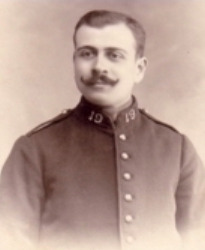
Napoleons grandson Fernand ,Son of Count Léon served in the 19th Infantry Regiment he would die in the final year of the war. He was married but had no children.
#napoleon bonaparte#napoleon#ww1 history#napoleon’s grandchildren#charles léon denuelle#alexandre colonna walewski#Napoleon’s family
41 notes
·
View notes
Text
I now have just recently discovered about this hond book called Frollo meets his match, and the fact that it's official makes it even better, I mean—


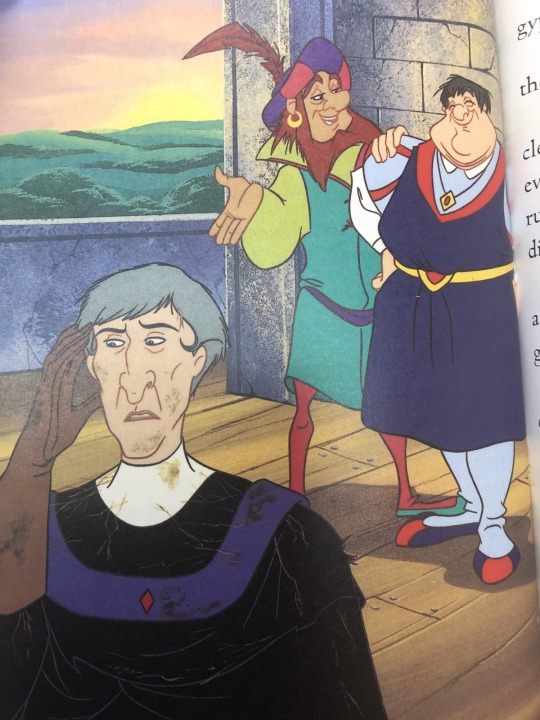
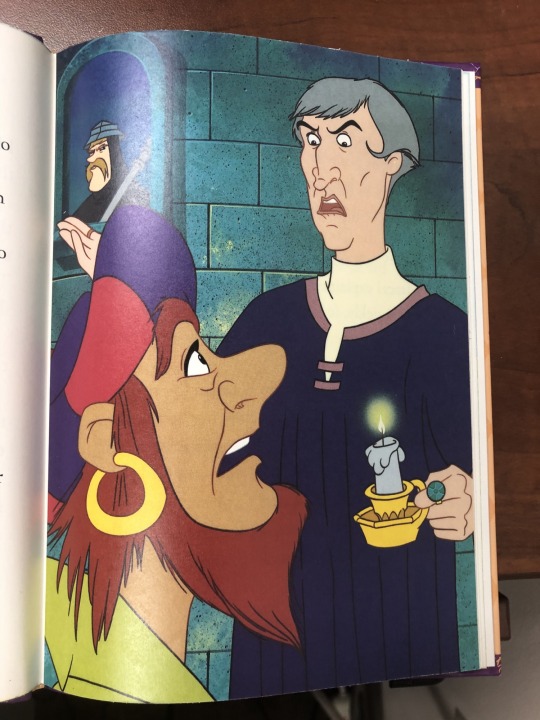

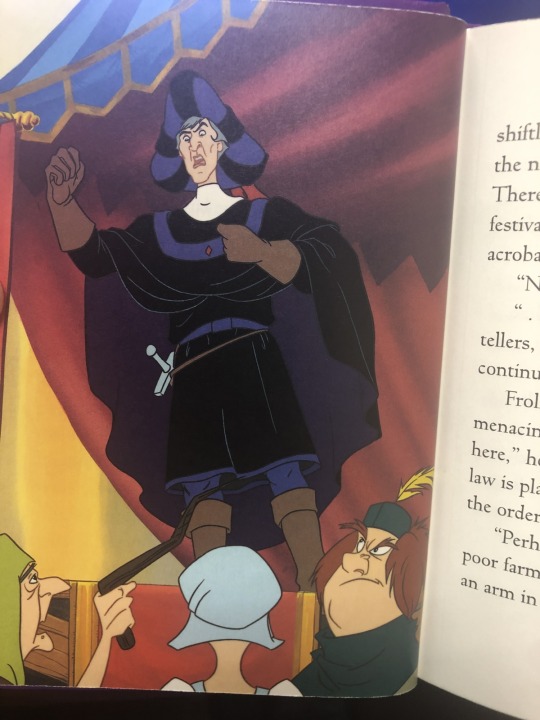
LOOK AT HIM.
So the book is about Frollo just being appointed as the new Minister of Justice and being a killjoy, he later gets tricked by Marcel (the current leader of the gypsies) believing that he'll lead him to the court of miracles but NOPE, Frollo gets arrested TWICE, the second arrest was literally by one of his men and he gets humiliated in most part of the book.
Also,

Young Clopin!
#if you want to read it just let me know#i have the text#not all the pictures tho#i found these pictures in god knows which site#i cant even remember#but yes#why didn't i find this sooner#frollo#claude frollo#hond#the hunchback of notre dame
377 notes
·
View notes
Text
BUCHAREST: Nicusor Dan, the centrist mayor of Bucharest, won a tense rerun of Romania’s presidential election on Sunday, beating nationalist George Simion in a vote seen as crucial for the direction of the EU and Nato member bordering war-torn Ukraine.
The ballot came five months after Romania’s constitutional court annulled an election over allegations of Russian interference and a massive social media promotion of the far-right frontrunner, who was not allowed to stand again.
Dan, who campaigned for an “honest” Romania, gained close to 54% of the vote, while US President Donald Trump admirer Simion secured some 46%, according to near complete results.
“It’s the victory of thousands and thousands of people who… believe that Romania can change in the right direction,” Dan, 55, told supporters, who chanted “Europe” and “Russia, Russia, Romania is not yours”.
Turnout was close to 65%, compared to 53% for the May 4 first round, in which Simion secured most votes.
“The mobilisation was almost unprecedented,” political scientist Sergiu Miscoiu told AFP, adding “never has an election been so decisive, with clear geopolitical implications.”
Romania’s president has significant sway in foreign policy, including holding veto power at EU summits.
People’s will
EU chief Ursula von der Leyen congratulated Dan, vowed it would help work towards “a strong Europe”. French President Emmanuel Macron said Romanians had “chosen democracy, the rule of law, and the EU… despite many attempts at manipulation”.
Ukrainian President Volodymyr Zelensky also congratulated Dan, saying it “is important to have Romania as a reliable partner”.
Despite exit polls showing Dan ahead, far-right leader Simion, 38 said he had won the election, but eventually conceded defeat to his rival.
“I would like to congratulate my opponent, Nicusor Dan. He has won the election, and this was the will of the Romanian people,” Simion said in a video on Facebook.
He vowed to “continue our fight” for Romania and to put its 19 million people “first”.
Simion, who leads the far-right AUR party, has criticised what he called the EU’s “absurd policies” and proposed cutting military aid to Ukraine.
Simion and Dan both campaigned on a platform of change amid anger over the politicians, deemed corrupt, who have ruled one of the EU’s poorest countries since the end of communism 35 years ago.
Simion voted in Mogosoaia, just outside Bucharest, with far-right politician Calin Georgescu.
Georgescu was the front-runner in last year’s cancelled presidential election and was barred from taking part in the rerun.
As the duo arrived, dozens of people, some holding flowers, shouted: “Calin Georgescu for president.”
Tense atmosphere
The election campaign took place in a tense atmosphere.
The cancellation of last year’s vote and subsequent barring of Georgescu drew tens of thousands onto the streets to protest in sometimes violent rallies.
Top US officials also criticised the decision to scrap the last ballot.
The surprise resignation of prime minister Marcel Ciolacu and the collapse of his pro-European government coalition – after their candidate failed to make the runoff vote – further raised the stakes.
The new president will have the power to appoint a new prime minister.
The election turmoil has increased economic uncertainty in the EU’s most indebted country, which has grappled with high inflation.
“The stakes of these elections are huge because there is widespread chaos in Romania right now after the annulment,” voter Runa Petringenaru told AFP.
“We can’t wait for it to be over,” the 55-year-old workshop organiser added.
15 notes
·
View notes
Text
#shingeki no kyojin#polls#eren jaeger#mikasa ackerman#armin arlert#jean kirschtein#sasha braus#connie springer#reiner braun#bertholdt hoover#annie leonhart#pieck finger#porco galliard#zeke jaeger#erwin smith#levi ackerman#hange zoe#kenny ackerman#Onyankopon#gabi braun#falco grice#colt grice#historia reiss#Marco bott#marlowe freudenberg#hitch dreyse#floch forster#dot pixis#keith shadis#nile dok
7 notes
·
View notes
Text
FE3H Oc Lore pt. 3 - Family History III
Previous parts: Pt. I -> Pt. II
(I got bored and ahead of myself. These are the last parts of the Family History section)
The Flame of Brash Ambition

Baron Tyrion von Isla II, in his 3rd year of being head of House Isla, would try convincing the rest of the Wolfskin tribe to complete their total immigration to Angr to boost the populace further. In what remained of the mountain village, he would meet a Wolfskin woman named Batik, the only daughter of the elderly chieftain. She had initially refused to leave Jarnvith for Fodlan, stating she would not leave for a land she hadn't a single care for.
Trying (and failing) over and over again to change her mind, Tyrion II found her uninhibited thoughts and manner of speech both irritating and oddly engrossing. So, in a twist of roles, it was Batik who would do the bargaining. She insisted that if he wanted her and the rest of her village to join him in Fodlan, he would have to marry her, and in doing so, would give her a reason to travel down the mountain
And so, he reluctantly agreed, though Batik proved to be an astonishingly good fit as the Lady Baroness of House Isla.
From her, he fathered 4 children. His first three were strapping young boys who were, admittedly, a bit too much like their mother - in more ways than one - which made including them in public affairs outside of their territory difficult. Tyrion III had grown a long, fluffy tail and pointed ears; Marcel was practically born with paws and an almost insatiable appetite, Hessian's teeth were much too sharp, and he too had pointed ears. Too many features among the three of them to hide.
However, to his joy, he had finally hit the jackpot. A little girl with red curls like his and ne'er a Wolfskin feature in sight. (One could easily shrug off her sharper teeth as a dental quirk.)

He would see the sheer lack of overtly beastial features was a boon to his next endeavor: marrying her off to a powerful house. Having to be more careful with his sons, he wasted no time being quite liberal when it came to his daughter, dolling her up and teaching her as much as she could handle at such a young age so she could navigate the nobility.
This little girl was his ticket to a higher rank in Adrestia, surely.
Quickly, Tyrion II began researching prospects for her among Adrestian aristocracy, from Essar to Nuvelle to Hrym. Yet none of them had quite the suitable match he was looking for. So, he set his sights even higher. Perhaps a risky "Hail Serios" shot straight to the top, a glimpse through the door of the seemingly untouchable.
Through spending time among the rumor mils, and hefty amounts of gold placed in the right pockets, he eventually learned that one of the heads of a ministerial house had a son around his now 4 year old girl's age, much to his delight. Soon, he was worming his way into important events and utilizing the Isla family's signature silver tongue with the leader of said house, taking frequent trips to the capital city with his toddler in tow just to see the minister's son.
Perhaps it was due to her training or sheer dumb luck, but his daughter took a shine to the boy and the two steadily became friends. Impatience gnawed at him, and Tyrion II would make many attempts to bring up the prospect of betrothing the two to said minister during trade visits, with varying results ranging from idle consideration to none at all.
Insurrection of the Seven and Beyond

Unfortunately, Tyrion's ambitions had come back to bite him harshly. Because of the insurrection of House Hrym and their brutal subjugation following a very unpopular policy headed by the Emperor, Tyrion feared for the survival of his territory. Batik made sure to remind him that the majority of the populace of the Barony - which lay smack dab in between the capitals of the two most powerful houses in Adrestia (Hresvelg and Aegir) - were inhuman and were potentially in danger of being exposed should the crown turn their eye in his direction with even a hint of scrutiny.
Thanks to his selfishness, he had failed to realize that in drawing the direct attention of a ministerial house, he had inadvertently invited keen eyes into his territory -- and the secrets well hidden by his father and grandfather before him were in danger of being laid bare should they choose the wrong side in this conflict. His plans, his hopes for the future, and, more importantly, his people and house were all in danger.
In the end, he pleaded with and ultimately bent the knee to the ministerial house he'd hoped to marry his daughter into, taking their side and denying the crown House Isla's assistance in order to preserve his territory during the incoming Insurrection.
During all of this, Tyrion II had unwittingly placed his prize daughter right in the middle of everything with his meddling, so he quickly packed her up and sent her away to Garreg Mach to protect his investment, seemingly never to see her friend again. Until she came of age to join the Officer's Academy and find a different but equally suitable prospect among the plethora of noble students attending, her father would not welcome her back home.
This decision ultimately created a rift between Tyrion II and Batik, who despised the notion of sending her young child away altogether, a sentiment echoed by his eldest son, Tyrion III.
For now, House Isla is unshakably loyal to the ministerial house for protecting their interests during the Insurrection, either intentionally or unintentionally, and the ministerial house in turn benefits from the resources that would otherwise have been theirs anyway through marriage alliance. However, this hiccup did little to halt his schemes entirely.
A ministerial house may have his resources for now, but that did not mean other connections couldn't be made...
(Note: Taguel/Kitsune/Wolfskin being named after fabrics continues! Tyrian purple was an incredibly rare and super expensive dye once upon a time, and Batik is a style of fabric dying that uses wax to block some parts from showing. So, combining the two ideas, Batiks genetics were freaking strong until Viktorya came along.)
9 notes
·
View notes
Text

El Greco, Saint Sebastian, circa 1610
8 notes
·
View notes
Text
Tina Aumont in "Cadaveri Eccellenti" trailer.
Illustrious Corpses (Italian: Cadaveri eccellenti, French: Cadavres exquis) is a 1976 Italian-French thriller film directed by Francesco Rosi and starring Lino Ventura, based on the novel Equal Danger by Leonardo Sciascia (1971).
In 2008, the film was included in the Italian Ministry of Cultural Heritage's 100 Italian films to be saved, a list of 100 films that "have changed the collective memory of the country between 1942 and 1978."
Cast
Lino Ventura as Inspector Amerigo Rogas
Tino Carraro as Chief of Police
Marcel Bozzuffi as The lazy
Paolo Bonacelli as Dr. Maxia
Alain Cuny as Judge Rasto
Maria Carta as Madame Cres
Luigi Pistilli as Cusan
Tina Aumont as The prostitute
Renato Salvatori as Police Commissary
Paolo Graziosi as Galano
Anna Proclemer as Nocio's wife
Fernando Rey as Security Minister
Max von Sydow as Riches, Supreme Court president
Charles Vanel as Varga
#Tina Aumont#1976 Tina#Cadavres Exquis#Illustrious Corpses#Cadaveri Eccellenti#1976 Cadaveri Eccellenti#Lino Ventura#Luigi Pistilli#Fernando Rey#Italian Cinema#French Cinema#Italo French cinema#thriller#political film#actress
8 notes
·
View notes
Text
Moroccan Jews recall the Egoz disaster
At this time of year Moroccan Jews recall the disaster of the Egoz, in which 44 passengers hoping to reach Israel drowned off the coast of Morocco. Raquel Levy-Toledano wrote up their story for l’Arche ‘s special issue on Morocco in November 2023.

Monument to the Egoz disaster in Ashdod, Israel
The collective memory of the Moroccan Jewish will forever be marked by the wreck of the Pisces, renamed the Egoz, which occurred on Wednesday 11 January 1961.
The Pisces was an old star of the British army, converted into a smuggling boat. On board, ten families of Moroccan Jews going to the Promised Land with a Mossad envoy. They mostly perished during the shipwreck: the families Edery (Nissim, Mordekhay, Rosa, Annette, Marcelle, Shaba, Haim, Albert), Azoulay (Hnina, Gisele, Shalom, Pierre, Meyer, Rachel), Elmaleh (Isaac Alya, Albert, Simon, Messoda, Suzanne), Benarroch (Raphael, Tamar, Jacques, Denise, Jacqueline, Gabriel), Dadoun (David, Judah, Danielle, Jacky), Benlolo (David, Marie, Yochoua, Alice, Rachel), Mom (Henry, Gisele, Haim, Florence, Rebecca), Elkouby (David), Gozlan (Freha) and Librati (Esther).
Jacques and Denise Benarroch had married the day before. David Dadoun had been arrested and turned back at Casablanca airport with a fake passport. With his two children, he was excited to join his wife and two other boys already in Israel. Henry Mamane, a Casablanca bartender, his 80-year-old mother Hannah Azoulay, and his children were looking forward to being reunited with two of his daughters. The first had left on January 2. The list of victims also included Haim Sarfati, a 28-year-old Israeli born in Fez, sent by the Mossad as a radio operator, on a last mission before returning to marry in Israel. Francisco Pérez Roldán (Paco) was the Spanish machinist.
To divert the suspicions of any possible inspectors, the group had pretended they were going on a pilgrimage to Ouezzane, to the grave of Amram Ben Diwan and attending a wedding in the Al Hoceima region. The journey had been exhausting since they left Casablanca. At Al Hoceima the group was boarded into tugs by armed and hooded men and led to the main ship. Despite the favorable weather forecast, the sea was rough and the ship pitched and rolled violently. Only ten miles (16 km) from the Moroccan coast and after sailing for thirty minutes, the hull split and the boat sank within minutes. Three crew members embarked on the only lifeboat, leaving the passengers to their sad fate. Only the machinist Paco Perez refused to abandon the passengers, mostly women and children.
On 11 January 1961, 42 passengers perished, despite the rescue efforts of Spanish and Moroccan trawlers, a Coast Guard, a Rapid Star and a British aircraft and two French Navy escorts. Twenty-three corpses were found floating on the surface with life belts. The wreckage of the boat and the bodies of the other passengers, including 16 children, were never found.
This tragic event raised a global tide of emotion. A leaflet and poster campaign in Morocco and Israel, deploring the disaster, provoked the anger of the Moroccan authorities. Negotiations followed between the future King Hassan II and a committee of prominent Jews consisting of Doctor Léon Benzaquen, former minister and personal friend of Mohamed V, David Amar, president of the Jewish Community of Morocco and the Chief Rabbi Shalom Messas who wanted areligious burial for the victims. The Prince conceded to the burial of the 23 bodies in a remote corner of the Al Hoceima cemetery. The ceremony was discreet and relatives absent. After years of negotiations, King Hassan II authorized the repatriation of the remains of the shipwrecked victims. They received a national funeral at Mount Herzl in Jerusalem on 14 December 1992.
In the early 60’s the tragedy opened the gates to massive legal emigration of Jews from Morocco to Israel.
In the early 60’s the tragedy opened the gates to massive legal emigration of Jews from Morocco to Israel.
More about the Egoz
7 notes
·
View notes
Text
https://www.kron4.com/news/national/ap-us-news/ap-americans-convicted-in-congo-of-a-botched-coup-attempt-now-face-us-charges/

AP U.S. News
Americans convicted in Congo of a botched coup attempt now face US charges
by: HANNAH SCHOENBAUM and ERIC TUCKER, Associated Press
Posted: Apr 9, 2025 / 03:33 PM PDT
Updated: Apr 9, 2025 / 03:38 PM PDT
SALT LAKE CITY (AP) — Three Americans repatriated to the United States from Congo this week have been charged with participating in an elaborate coup attempt aimed at overthrowing the African nation’s government last year, the U.S. Justice Department said Wednesday.
A fourth man alleged by prosecutors to be an expert in explosives was also charged with aiding the plot.
The criminal charges arise from the same set of allegations that led to three of the defendants being detained in Congo and receiving death sentences. The sentences were later commuted to punishments of life imprisonment before the men were ultimately transferred Tuesday into U.S. custody to face charges in an American court. Their repatriation came amid efforts by Congolese authorities to reach a minerals deal with the U.S. in exchange for security support to fight rebels in the country’s conflict-hit east.
A criminal complaint unsealed by prosecutors Wednesday follows a long-running FBI investigation and accuses the men of conspiring to provide weapons, explosives and other support to a rebel army that was formed to try to overthrow the government.
Among the three Americans is 22-year-old Marcel Malanga, son of opposition figure Christian Malanga, who led the coup attempt that targeted the presidential palace in Kinshasa. The elder Malanga livestreamed from the palace during the attempt and was later killed while resisting arrest, Congolese authorities said.
Prosecutors say the accused wanted to establish a new government
Prosecutors say the goal of the plot was to establish a new government known as New Zaire and install Christian Malanga as its president. The younger Malanga identified himself as the “Chief of Staff of the Zaire army” and acted as a leader of the rebel forces, court documents say.
Christian Malanga, who was born in the Congolese capital of Kinshasa, had described himself on his website as a refugee who settled in the U.S. with his family in the 1990s. The self-proclaimed leader of a shadow government in exile sold used cars and dabbled in gold mining before persuading his Utah-born son to join in the foiled coup. Christian Malanga was convicted in Utah of assault with a firearm in 2001 and had charges dismissed in several other criminal cases.
Marcel Malanga, Tyler Thompson Jr., 22, and Benjamin Zalman-Polun, 37, were returned to the U.S. Tuesday. They are expected to make their first court appearance in Brooklyn.
The alleged explosives expert, Joseph Peter Moesser, 67, is set to appear in court in Salt Lake City on Thursday. Prosecutors say that as part of the plot, he provided explosives training and instructions at his Utah home and contributed weapons.
Thompson’s attorney, Skye Lazaro, said Wednesday she did not yet have information to share. No attorneys were listed in court documents for the other three defendants.
The men are charged with crimes including conspiracy to use weapons of mass destruction, conspiracy to bomb government facilities and conspiracy to kill or kidnap persons in a foreign country. Those charges, which taken together could result in lengthy prison sentences in the event of a conviction, could change if and when the defendants are indicted by a grand jury.
Justice Department: Coup attempt was the result of a months-in-the-making plot
The complaint provides the most detailed chronicle to date of the planned May 2024 overthrow of Congolese President Félix Tshisekedi. At least six people, including Christian Malanga, died when armed men in camouflage fatigues led an attack on the homes of the president and a deputy prime minister.
The charging document makes clear that the alleged coup was the result of a months-in-the-making plot rather than a haphazard idea, with the men accused of recruiting friends in the U.S., acquiring drones and military-style weapons and also participating in extensive firearms training. The men are also alleged to have hijacked a bus and raided a Congolese police station to obtain weapons for the deadly attack.
Malanga told a Congolese judge that his father threatened to kill him if he did not follow his orders.
“We’re about to go take out some terrorists,” Malanga is alleged to have told a friend he was recruiting to go to Africa. The friend is not named in the complaint.
Other friends told The Associated Press that Malanga had offered up to $100,000 to join him on a mysterious “security job” in Congo.
Prosecutors are seeking to keep all four men in jail as the case moves forward.
“The four defendants pose an extreme danger to the community and present an unmanageable risk of flight,” the Justice Department said in a detention memo.
It notes that Moesser, a longtime associate of Christian Malanga, faced allegations of criminal conduct years earlier when he was accused of trying to place explosive black powder on an plane departing from the Salt Lake City airport. He pleaded guilty to a misdemeanor and was sentenced to a form of probation.
Prosecutors say defendants include a drone specialist and bomb-making expert
Thompson, a friend and former high school football teammate of Marcel Malanga in Utah, is identified in court documents as a drone specialist who prosecutors say shopped for a flamethrower attachment that he planned to use to “light people on fire.”
His family has said he flew to Africa for what they believed was his first vacation abroad, paid for by Christian Malanga.
Witnesses observed Thompson and the younger Malanga conducting drone test flights and firing handguns and rifles at a shooting range near Salt Lake City before they left for Africa, according to the complaint.
Moesser allegedly helped Thompson and Malanga install the flamethrower attachment and showed them how to use drones to drop pipe bombs. Messages obtained by investigators show Moesser conspiring with Christian Malanga to ship explosives and AR-15 rifles to Congo, the complaint said.
Zalman-Polun reportedly traveled to Utah to help Malanga recruit soldiers for their rebel army. If the plot had been successful, Zalman-Polun would have become Christian Malanga’s chief of staff or would “work in finance” in the new administration, court documents say.
The complaint also places three of the defendants at the scene itself, using images and posts from the men’s social media accounts, including livestream videos that Christian Malanga recorded.
___
4 notes
·
View notes
Text
Okay, why the fuck did Anton Rayne bring Marcel Koronti to Vina's wedding? Instead of, I don't know, his wife? I knew going in that Petr could make a cameo here, but he, uh, didn't survive my Sordland run. But why Marcel? I didn't make the deal with him in this run. I didn't have a good relationship with him at all! It's such a weird choice.
I figured Lucian (my VP) was too much to hope for, but why not Deivid? He's foreign minister! Everyone loves Deivid!

At least Estela is happy.
#why do they keep having cameos from sordland people i hate?#also i want estela's cool sea creature hat#suzerain#rizia
4 notes
·
View notes
Text
Trans40mers Pt. 4/12: Primal's Parallel Paradigm!
Back in August 2012, Sydney played host to its first (and last) Heroes & Villains Pop Culture Expo. They dedicated the Sunday morning panel to a trio of comic book creators, who over the space of an hour, discussed and dissected the trials and tribulations of the publishing industry. It wasn't long before parallel development became a heated topic. One creator expressed enthusiasm over a new graphic novel idea; humanity is about to go extinct in the future, so they use time travel to zip back millions of years and rebuild the species. The outline was approved and story ready to go... until Kelly Marcel and Craig Silverstein's Terra Nova was announced. All their hard work? Instantly gone.
What's that got to do with Transformers? This month's robotic retrospect looks at two instances when the series was directly competing against itself, one where a competitor steals the same idea first, plus a bonus entry from a time when they... fought to survive accusations of being public enemy number one. So much senseless in-fighting. Can't we all just get along? No? Alrighty.

11th April 1984: Hoping to win the transforming toy robot race before it even began, Bandai Australia attempted to trademark the word "Transformers" for their ongoing Machine Men figures. For a brief time, both names are slapped on packaging released here and New Zealand.
-=-=-=-=-=-
When two tribes go to war, a point is all that you can score. And there were plenty of points on offer in 1984. Frankie Goes To Hollywood took a shameless swing at oil-oozed capitalist America and their delusions of nuclear grandeur, reaching fourth on the local music charts. Marvel Comics' greatest heroes clashed in their almighty 12 month shadow duel. A second election was held in as many years, cementing Bob Hawke's position as Prime Minister.
Yet one Secret War remains exactly that. On the left stood Bandai and their Sydney legal powerhouse Spruson & Ferguson. Up against them, Milton Bradley packing their own Sydney solicitors Baker McKenzie. The prize? Determine once and for all who deserved to use the name "Transformers" on their converting plastic toy robots.
Two people pushing the same yet distinct idea for total market control? A tale as old as time. Although these toys were described by news media as "An origami R2-D2", the potential $100 million industry was no laughing matter. Already having success with their Machine Men, Bandai swooped first and trademarked the name, hastily adding it to their products in bright yellow sans-serif font. Milton Bradley were less than impressed. Letters were sent and barbs were thrown, resulting in months of bureaucratic battles.
By October, the war had ended. Bandai withdrew their application and Milton Bradley's plans went ahead. When interviewed by The Sydney Morning Herald over this impending robo revolution, they attempted to save face by printing design chief Seiichi Haga's oft-quoted "Japanese children have always liked mechanical systems as well as all kinds of vehicles, so that gave us the idea to combine them" remark. But the press smelt blood and queried about their rival splurging $8 million on advertising. Bandai deflected with "We invent names that sound strong and futuristic. Foreign-sounding words are catching", followed by a list of their most popular robot toys, including GoBots.
Round One? Hasbro.

15th April 2019: Coles Supermarket dipped its toes into selling Signature Publishing's Transformers Rescue Bots magazine, offering shoppers an "exclusive" edition of issue 17. The partnership worked out, and by late 2020, they became said magazine's sole local distributor.
-=-=-=-=-=-
The latter 1980's were a grand time for comic enthusiasts. Dropping by a local newsagent offered a bounty of books; from Uncanny X-Men to The New Teen Titans and so many in between. But in particular for Transformers fans, the inclusion of Marvel US and UK titles ensured Aussie got the best of both worlds.
Fast forward three decades and the market has fallen apart. The loss of Dark Horse's Star Wars: Legacy and Archie Sonic the Hedgehog in November and December 2014 delivered the 32 page floppy format's final blow. An invasion of imported British magazines boasting free gifts became the way of the future, winning out similarly to the 2000's battle between K-Zone and Disney Adventures, where bigger was seen by cash-strapped parents as better.
And it was through these periodicals that Transformers made their triumphant return after a five year absence. Arriving last week of 2015 was Signature's first 'Robots in Disguise'. Priced at $8.50, young fans could now read the adventures of their new favourite characters. Yet if one monthly fix wasn't enough, history soon repeated itself. Joining the party in February 2019 was 'Rescue Bots', which in typical Australian fashion, kicked off with issue 15.
So what made this "exclusive" edition special compared to its newsagent counterpart? Why, the inclusion of a new Optimus Primal toy, ready to compliment next month's "Bumblebee Dino Bot". Was it excess stock sold on the cheap? Was one of Coles' upper echelons a Transformers fan? Perhaps the latter. It must've done well, for beginning with issue 32 in October 2020, Coles were the only store to stock copies.
Readers who missed Primal would have to wait until he resurfaced with Academy-approved packaging in issue 41. Or 48. Or 52. But ultimately both magazines, and Signature itself, went extinct. Shortly after Rescue Bots' final issue, it along with rival Kennedy Publishing were amalgamated into Claverley Group Ltd., bringing 19 years of family friendly features to an end.

19th April 1987: Canberra's Bruce Jones takes aim at The Transformers in a scathing Sydney Morning Herald article, proclaiming a direct link between the TV series and increased violent behaviour at schools. So which character do they use to draw reader attention? Voltron.
-=-=-=-=-=-
Ah, the Australian mainstream media. Can't live with them. Can live without them? In their ever-desperate, conservative-leaning bid to perpetually win The Right Side of History™, it doesn't take much for a person, politician or brand to go from yesterday's dream teen to media trash queen. The 80's were no different, as barely a week after running a colouring contest to win Betamax and VHS copies of their first movie, The Transformers became blacklisted under The Sydney Morning Herald's poison pen of publishing persecution.
"Kids Copy TV Violence at School!" bellowed their bold, boisterous headline. Taking up top third of page 19, Bruce dove into detailing a Federal Parliamentary Committee meeting over whether to include mandatory messages of "Research shows violent and degrading entertainment has a harmful effect on children and adults" on videos. Spearheading talks were Joint Select Committee on Video Martial chairman Dr Dick Klugman, plus National Coalition on Television Violence research director Dr Thomas Radecki.
A controversial figure then as now, no expense was spared in Radecki's mission to demonizing Cybertron's finest. According to studies carried out among Australian schools, "Children playing Transformer war games were more likely to lose their tempers and get into fights", "Develop aggressive attitudes in school" and "Were more likely to get into drugs"! He further took aim at the Australian Censorship Board's decision to give the show a G rating.
"It is an extremely violent war cartoon produced by Hasbro Toys, America's second largest toy company... to maximize the sale of Transformer war toys", and how "Violent entertainment was a $20 billion a year industry, with war toy sales of $1.2 billion". Other 'offensive' cartoons such as ABC's 'Battle of the Planets' and 'Mysterious Lost Cities (sic) of Gold' took a hit, though in spite of being used for the article's eye-catching image, The Herald made zero mention of Arus' legendary defender Voltron.

27th April 2000: The battle of Beasts deepened a divide between poor and rich Australian kids. Free TV's Channel Seven returns Beast Wars to its weekly afternoon timeslot with Optimal Situation, while Pay TV's Foxtel premieres the Beast Machines episode Mercenary Pursuits.
-=-=-=-=-=-
Cometh the hour, cometh the machine.
An exciting new millennium meant exciting new things. The Sydney Olympic Games, K-Zone magazine, Sam Neill's hit 'The Dish', Bardot's rise to fame, plus Dragon Ball Z. The TV arrival of Beast Machines on Easter Monday should've by all rights been just as grand, but almost immediately found itself taking one side of a fierce rivalry over conglomerate media control.
It's a feud which could be traced all the way back to October 1998, when Optimal Optimus led the charge among Hasbro's third wave of Transmetals toys. Just in time for the premiere of Beast Wars' second season, boasting a then-unprecedented $80 price and limited to a handful of stores, fans itching to see this primate powerhouse in action would have to wait longer. Significantly longer. Seven's summer of sports played havoc among all three installments of 'The Agenda', and with no news of more episodes anytime soon, fans were left to explore other avenues.
In their attempt to win back a steadily rising crowd switching over to Foxtel, Seven resurrected the idea of hosted weekday morning cartoons. Thus 'The Big Breakfast' took on a second life in August 1999, where among the lineup was a batch of Beast Wars repeats running erratic on alternating days at 6:45am. Here the third season premiered with little promotion and even less fanfare in November.
By comparison, Beast Machines began its invasion of local shelves come late March 2000. Bigger, plentiful, pricier, but the only way to watch their adventures was via a Foxtel subscription. 5pm weeknights soon marked an evolution revolution, while Seven returning Beast Wars to 3:30 pm Thursdays hoped to recapture glory days. Viewers had three choices; watch old episodes again with now outdated characters, keep up with expected societal trends and dump them all in favour of the hot new toys on the hot new channel, or for many poor fans, miss out entirely.
Once again The Transformers brand was competing against itself.
#Transformers#TF#GoBots#Machine Men#Bandai#Milton Bradley#Road Ranger#Leader-1#Huffer#Turbo#Night Ranger#Hans-Cuff#Spay-C#Dozer#Rest-Q#Rescue Bots#Rescue Bots Academy#Optimus Prime#Optimus Primal#Voltron#Generation One#Beast Wars#Beast Machines#Optimal Optimus#Tankor#Foxtel#The Big Breakfast#Fox Kids#Australia#1984
6 notes
·
View notes
Text
BUCHAREST, Romania (AP) — A top Romanian court on Friday annulled the first round of the country’s presidential election, days after allegations that Russia ran a coordinated online campaign to promote the far-right outside r who won the first round.
The Constitutional Court’s unprecedented decision — which is final — came after President Klaus Iohannis declassified intelligence on Wednesday that alleged Russia ran a sprawling campaign comprising thousands of social media accounts to promote Calin Georgescu across platforms such as TikTok and Telegram.
The intelligence files were from the Romanian Intelligence Service, the Foreign Intelligence Service, the Special Telecommunication Service and the Ministry of Internal Affairs.
Despite being an outsider who declared zero campaign spending, Georgescu emerged as the frontrunner on Nov. 24. He was due to face reformist Elena Lasconi of the Save Romania Union party in a runoff on Sunday.
A new date will now be set to rerun the vote from scratch. Some 951 voting stations had already opened abroad on Friday for the runoff for Romania’s large diaspora but had to be halted.
Lasconi strongly condemned the court’s decision, saying it was “illegal, immoral, and crushes the very essence of democracy.”
“We should have moved forward with the vote. We should have respected the will of the Romanian people. Whether we like it or not, from a legal and legitimate standpoint, 9 million Romanian citizens, both in the country and the diaspora, expressed their preference for a particular candidate through their votes. We cannot ignore their will!” she said.
“I know I would have won. And I will win because the Romanian people know I will fight for them, that I will unite them for a better Romania,” she added. “I will defend our democracy. I will not give up.”
She said the issue of Russian interference should have been tackled after the election was completed. Some 9.4 million people — about 52.5% of eligible voters — had cast ballots in the first round.
Prime Minister Marcel Ciolacu said in a statement the annulment was “the only correct solution” following the intelligence drop which revealed the “Romanian people’s vote was flagrantly distorted as a result of Russian interference.”
“The presidential elections must be held again,” he said in a post on Facebook. “At the same time, investigations by the authorities must uncover who is responsible for the massive attempt to influence the outcome of the presidential election.”
The same court last week ordered a recount of the first-round votes, which added to the myriad controversies that have engulfed a chaotic election cycle. Following a recount, the court then validated the first-round results on Monday.
Many observers have expressed concerns that annulling the vote could trigger civil unrest.
George Simion, the leader of the far-right Alliance for the Unity of Romanians, said the development was a “coup d’état in full swing” but urged people not to take to the streets. “We don’t let ourselves be provoked, this system has to fall democratically,” he said.
Cristian Andrei, a political consultant based in Bucharest, said the court’s decision amounts to a “crisis mode situation for the Romanian democracy.”
“In light of the information about the external interference, the massive interference in elections, I think this was not normal but predictable, because it’s not normal times at all, Romania is an uncharted territory,” he told The Associated Press. “The problem is here, do we have the institutions to manage such an interference in the future?”
Thirteen candidates ran in the first round presidential vote in this European Union and NATO member country. The president serves a five-year term and has significant decision-making powers in areas such as national security, foreign policy and judicial appointments. On Dec. 1, Romania also held a parliamentary election which saw pro-Western parties win the most votes, but also a surge of support for far-right nationalists.
Before the first round vote, most surveys predicted the top three candidates would be Ciolacu, who came in third place, and Simion or Lasconi in second place. As the surprising results came in with Georgescu on top, and Lasconi narrowly beating Ciolacu, it sent shockwaves through the political establishment and plunged it into turmoil.
Georgescu’s surprising success in the presidential race left many political observers wondering how most local surveys were so far off, putting him behind at least five other candidates before the vote.
Many observers attributed his success to his TikTok account, which now has 6 million likes and 541,000 followers. But some experts suspect Georgescu’s online following was artificially inflated while Romania’s top security body alleged he was given preferential treatment by TikTok over other candidates.
In the intelligence release, the secret services alleged that one TikTok user paid more $381,000 (361,000 euros) to other users to promote Georgescu content. Intelligence authorities said information they obtained “revealed an aggressive promotion campaign” to increase and accelerate his popularity.
Georgescu, when asked by the AP in an interview Wednesday whether he believes the Chinese-owned TikTok poses a threat to democracy, defended social media platforms.
“The most important existing function for promoting free speech and freedom of expression is social media,” he said.
8 notes
·
View notes
Text
Defying all predictions, populist Russia-friendly politician Calin Georgescu won the first round of Romania’s presidential elections on Sunday – signalling that the EU member state has joined the growing trend towards the far-right in the region.
Georgescu, 62, who has no party of his own, got around 23 per cent of the votes, with more than 99 per cent of ballots counted.
At midnight on Sunday, Georgescu hailed the first-round vote as a victory for the “Romanian people”.
In another big surprise, centre-right Elena Lasconi, the leader of the reformist Union for Saving Romania, came second, just a few hundred votes ahead of Prime Minister Marcel Ciolacu, who leads the Social Democratic Party.
George Simion, leader of the nationalist Alliance for the Union of Romanians, came fourth.
Experts’ pre-poll predictions had put Ciolacu and Simion as the favourites.
“This vote is the biggest surprise in all the elections held so far in Romania,” said journalist Dan Tapalaga.
The second-round run-off will be held on December 8, but before that, Romania has parliamentary elections on December 1, with its political scene thrown into in turmoil by Georgescu’s unexpected success.
Under the Romanian constitution, the president wields considerable power – including oversight of foreign and defence policy and responsibility for appointing the prime minister.
‘TikTok candidate’
Georgescu, a religious nationalist, conducted a low-profile campaign, focusing primarily on social media platform TikTok and making in-person appearances only in selected rural areas. He received no coverage in the mainstream media.
In his campaign messages, he advocated reducing imports, strongly supporting farmers, and boosting food and energy production. He also criticised the EU, claiming it does not adequately represent Romania’s interests.
Georgescu questioned military aid to neighbouring Ukraine and called for an end to the war. In a 2020 interview, he described Vladimir Putin as one of the world’s few genuine leaders, stating that the Russian president loves his country, regardless of the methods he employs.
Speaking late Sunday in front of his home near Bucharest, as he did not even have a campaign headquarters, Georgescu congratulated the Romanian voters for backing him.
“By rekindling the flame of hope, the Romanian people have chosen to no longer kneel, to no longer be invaded, to no longer be humiliated,” he declared.
“Tonight the Romanian people shouted ‘peace’ and they were very loud ,” he added.
Experts struggled to explain the election’s outcome.
“The result of the vote was made possible because there is a significant demand in Romanian society for a politician like Georgescu. Why? I could give a more precise answer if there were high-quality sociological data on what Romanians want. Unfortunately, we lack such data,” said political analyst Claudiu Tufis.
Journalist Tapalaga said he believes that Georgescu’s success, after largely conducting his campaign via social media, also marks a shift in the way political communication is conducted in Romania.
Tapalaga said it was “the first election where social media has been more influential than television. We have seen how TikTok can defeat mainstream media,” he added.
The Romanian diaspora played a crucial role in the first round of the presidential elections. Over 800,000 Romanians living abroad cast their votes – a record turnout.
20 notes
·
View notes
Video
Lucy di San Germano by Truus, Bob & Jan too! Via Flickr: Italian postcard, no. 378. Photo: Fontana. Lucy di San Germano aka Lucy Sangermano (1898-?) was an Italian silent film actress who peaked in the late 1910s and early 1920s. Lucy di San Germano aka Sangermano, born in Turin in 1898, was originally named Lucia Moglia. She was the younger sister of actress Linda Moglia (1896-?). Very little is known about her private life. Lucia got her actor’s name right from the start in the film business when she had a supporting act in the film Passa la gioventù (1917), directed by Achille Consalvi and starring an older actress from the vaudeville, Maria Campi, who was a producer of the film too. The film was received negatively, in contrast to Sangermano’s next film, La maschera del barbaro (Paolo Trinchera, Ambrosio 1918), a war propaganda film about a sister who substitutes for a deserter, until he decides to return and sacrifice himself. Though the story was thin, they praised the performances of Francesco Casaleggio and Sangermano as brother and sister. From 1918 on, Sangermano worked for years at Ambrosio, and often co-acted with regular supporting actors of those years, such as Dante Cappelli, Umberto Scalpellini, Vasco Creti, Ernesto and Ercole Vaser, Lidia Benelli a.o. Under the pseudonym of Kismet, Trinchera directed Sangermano again in an adaptation of Marcel Prévost: Chonchette (Ambrosio 1918), about an officer of the Spahis Roberto Villani) who suspects his daughter (Luisa Benelli) to be the fruit of an adulterous affair between his wife (Sangermano) and his friend. In December 1918, just when the First World War had ended, three films with Sangermano were released. Noblesse oblige (1918), based on a boulevard comedy by Hennequin and Veber, was apparently directed by the famous poster designer and illustrator Marcello Dudovich, whose only film direction this was. In addition to Sangermano, her sister Linda Moglia also acted in the film. Sangermano also acted in Lagrime del popolo, in which the forzuto Alfredo Boccolini aka Galaor is involved in a drama of two families, one rich and immoral, and one working-class and honest. Sangermano is the working-class girl seduced by the rich young industrial’s son. A third film released at the same time was …E dopo? (1918) by Febo Mari and with himself in the lead as a proud prime minister, a thinker, fighter, ascetic and legislator together, whose daughter (Sangermano) instead falls for a sleek, elegant young man, her cousin (Luigi Cimara). She reveals to him all kinds of top secrets with which the young man can speculate. While the high-placed father fights corruption, misery and weakness, the little people finally manage to push him off his pedestal. Febo Mari’s film was praised in the press as a superb creation in which Mari had turned the actors into real characters instead of mannequins, while also praising the actor’s performance of all involved, including Sangermano. Next Sangermano had a lead in the film La gibigianna (1919), directed by the Ambrosio veteran Luigi Maggi and based on a popular play by Carlo Bertolazzi. She plays Bianca, a porcelain factory worker who marries Enrico, the foreman (Sandro Ruffini), who has gone down the social ladder and hates wealth. Instead, Bianca aspires to high life and eventually drops him for a rich man. When he begs her to come back and she refuses, he strikes her with a knife and escapes, afraid he killed her. When overcome with grief, he is about to go to jail (another source says he is about to commit suicide), and she saves him. While La gibigianna was disliked in the Italian press, praise there was for the next film L’amante della luna (Consalvi 1919), based on a popular novel by Paul de Kock and starring Sangermano and Villani. Villani is the Moon Lover who sleeps in the daytime but sets things straight at night time. La Stampa wrote at the time: “One of the most passionate dramas, which keeps the audience tied to the screen until the last word.” Sangermano is the innocent girl who is about to succumb to a seductress avid for power and money. In particular, Sangermano’s acting was praised. In 1919 Sangermano moved over from Ambrosio to the Turinese Audax company for some lesser films: Il libro della vita (1919) by Giuseppe Guarino, Inutile attesa (1919) by Vittorio Tettoni, the adventure film La mano guantato di bianco (Tettoni 1920) with forzuto Celio Bucchi, Le vicende dell’illusione (Tetttoni 1920) with Giovanni Cimara, and La roccia della morte (Tettoni 1920) with Tettoni himself. More attention got the film La bambola e l’amore by diva film specialist Alfredo De Antoni, in which Sangermano acted opposite Luigi Serventi and Tullio Carminati. While audiences loved it, the press had reservations. The story deals with count Renato (Carminati) and writer Maurizio (Serventi) who love the same woman Cecyl (Sangermano). After a duel between the men she chooses and marries the count. In Venice, the writer finds Zanze, a lookalike of the woman (again Sangermano), and stages a charade to convince the count his wife is committing adultery and to win the woman back. It gets out of hand. The count chases his wife who dies out in the streets, while he also kills the lookalike, holding her for his wife. After La bambola della morte Sangermano acted at the same Rome-based company Do-Re-Mi in another two films by De Antoni, Il mercante di emozioni (1921), with Serventi, De Antoni himself, and the leading man of Italian silent acting, Alberto Capozzi, and Il poeta e la principessa (1921), with again Capozzi and De Antoni. Around 1920 Sangermano acted at various companies just once. She acted at Vay Film in La medaglia e il rovescio (1920), directed by the Russian emigré Aleksandr Uralsky, and at Medusa Film in La rupe tarpea (Gaston Ravel 1921), with Luigi Cimara and Carlo Gualandri. Sangermano’s penultimate two films were at the Roman Cines company: L’incatenata (Augusto Genina 1921), with Angelo Ferrari and Augusto Poggioli, and Il castello della malinconia (Genina 1922), with Ferrari, Poggioli, and Gemma De Sanctis. Sangermano’s last film was at the Turinese company Fert: L’inafferabile (Mario Almirante 1922), with Alberto Collo, Domenico Serra, Carlo and Olga Benetti, and Oreste Bilancia. Collo plays a man who is robbed of all his belongings just before marrying a rich heiress (Sangermano). Together they go after the thief, who is the least expected one: the loyal secretary. Apparently, in 1922 Sangermano stopped her film career, possibly because of the decadence of the Italian film industry, possibly also because of the contemporary competition of her sister as Roxanne in the period piece Cirano de Bergerac by Augusto Genina, which again co-starred Ferrari as Christian, De Sanctis as the governess and Pierre Magnier as Cyrano. Cirano was released one year after in France, where it was a huge success in Paris, and was released in Italy only in late 1925, in Rome even in early 1926. Yet Moglia, after one more film in 1924, also called her screen acting a day, just like her sister. It is unclear what happened with the sisters afterwards. Sources: IMDB; Vittorio Martinelli, Il cinema muto italiano, 1917-1923.
#Lucy Sangermano#Lucy di San Germano#Lucy#Germano#San#Sangermano#Vintage#Postcard#Cinema#Cinema Italiano#Film#Film Star#Movies#Star#Screen#Sepia#Actress#Actrice#Attrice#Schauspielerin#Darstellerin#Italy#Italian#Italia#Italiano#Italiana#1920s#1910s#Muet#Muto
4 notes
·
View notes






